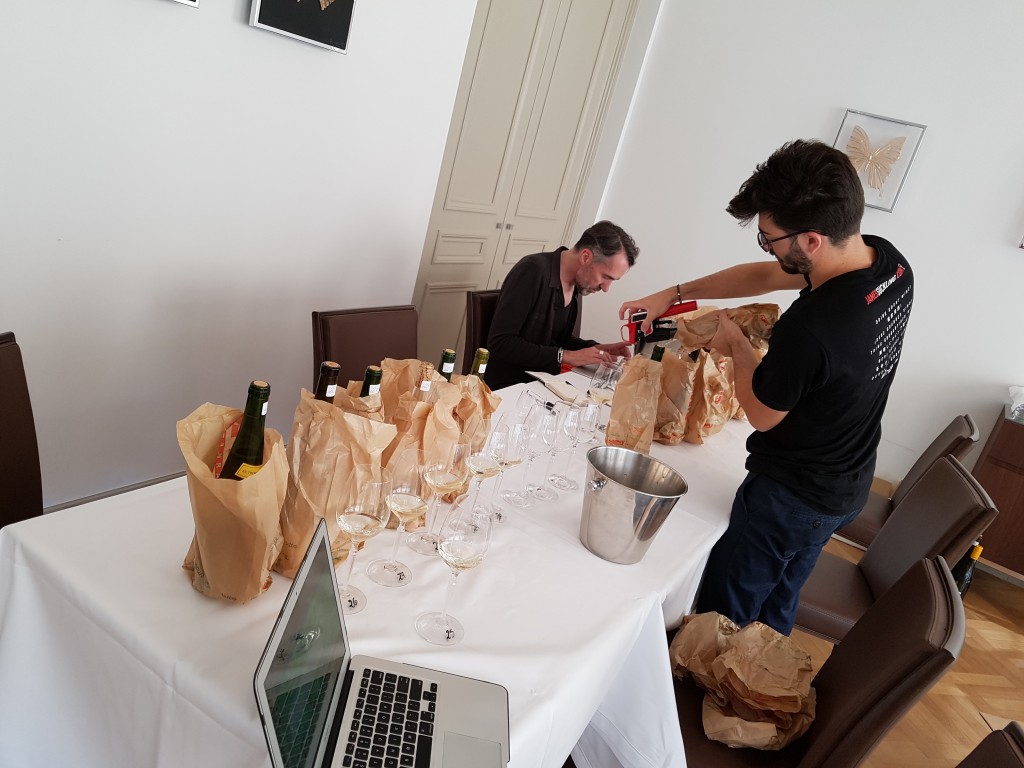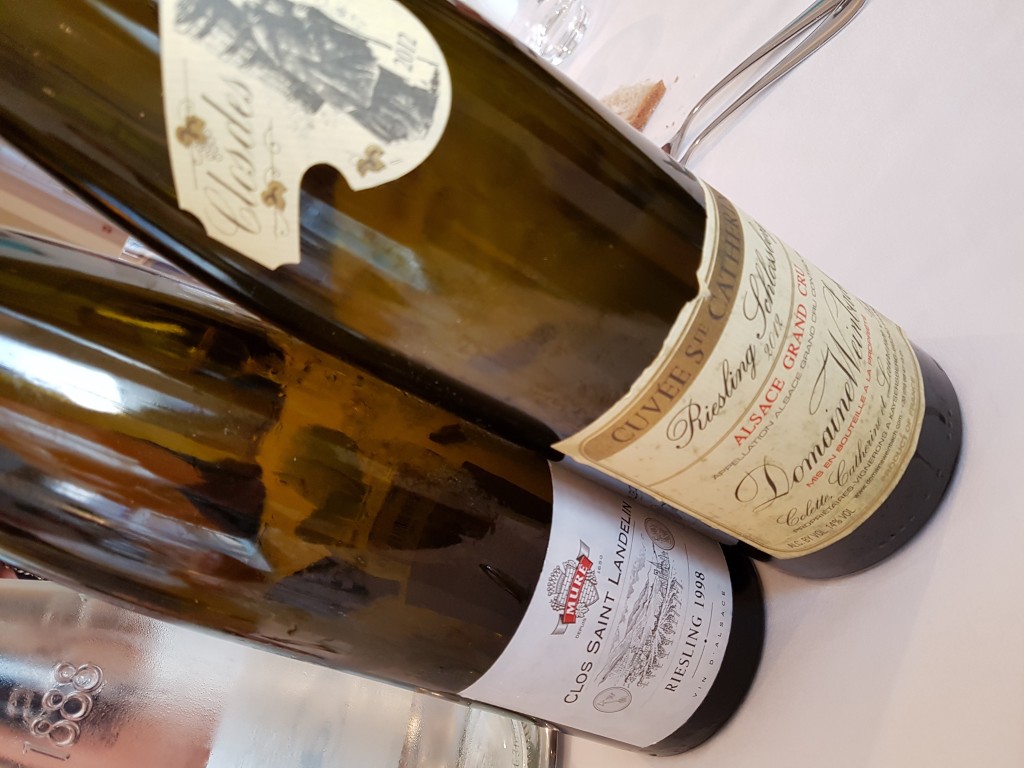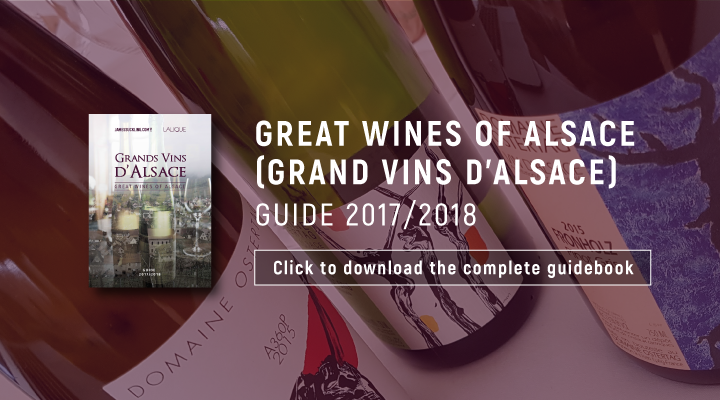Alsatians are some of world’s most idiosyncratic winemakers. The best are hands-on, dedicated workers who craft unique reds and whites that cannot be duplicated anywhere else in the world. I love visiting this place every year, tasting the latest crop of wines, meeting the winemakers, and getting my shoes dirty with soil.
Most of the wines tasted in Alsace this year were from the 2015 vintage, and it is outstanding. Check out my list of the Top 100 Wines of Alsace as well as the overall tasting report. This story also includes a PDF of our bilingual guide to the wines of Alsace.
I personally owe Alsace so much because of Lalique and the high-end range of wine glasses and decanters that we produce together (called the Lalique James Suckling 100 Points). These glasses are a global success thanks to the diligence and expertise of one of the world’s greatest crystal makers located in the town of Wingen- sur-Moder. Whenever I visit the factory and Villa René Lalique (now a Michelin- starred restaurant and hotel), I feel at home and a part of Alsace and its magnificent culture and spirit.

Tasting with my Contributing Editor Stuart Pigott
This year I tasted more than 500 wines with my Contributing Editor Stuart Pigott. We were in awe of so many of
the excellent quality wines, both white and red. This can be primarily attributed to the outstanding vintage of 2015. Our Alsace Wine of the Year 2017/2018 is the Domaine Ostertag Riesling Alsace Grand Cru Muenchberg 2015. It is a testament to everything Alsace can achieve with precision, soulful winemaking, and a superb grand cru vineyard site. It receives the Lalique JamesSuckling.com Alsace Gold Decanter this year (check on the top 100 report here).
Other winners include: Muré Riesling Alsace Grand Cru Vorbourg Clos St Landelin Selection de Grains Nobles 2015 (silver decanter), Domaine Zind Humbrecht Pinot Gris Alsace Grand Cru Rangen de Thann Clos Saint Urbain 2015 (bronze decanter). We also awarded this year the Schoech family a special honor for the best young vignerons in Alsace.

Muré and Domaine Weinbach are outstanding as well.
But picking just one wine that stood above the rest wasn’t easy. From structured pinot noirs to aromatic
and complex pinot gris, and rieslings, Alsace has phenomenal range and diversity. The only negative we found was gewürztraminer, which doesn’t seem to have a clear style and meaning in Alsace. Is it dry, sweet, alcoholic or what? This was confusing to us and must be to consumers as well.
Nevertheless, Alsace is truly a special place, and I look forward to returning next year for more tasting.— James Suckling, CEO and Editor

